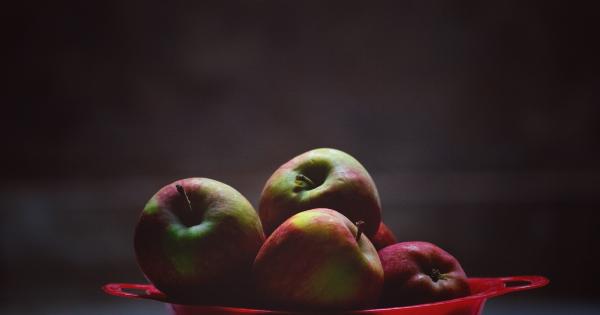Vitamin B12 is an essential nutrient needed by the human body for several functions such as red blood cell formation, DNA synthesis, and nerve function.
The nutrient can only be found in animal-based products, which means vegetarians and vegans have to find alternative sources of the vitamin. In this article, we will discuss 10 non-meat sources of vitamin B12 that plant-based eaters can add to their diet.
1. Nutritional Yeast
Nutritional yeast is a popular ingredient in vegan cooking and is a good source of vitamin B12. It is a deactivated yeast that has a nutty, cheesy flavor, making it a great substitute for cheese in recipes.
Just one tablespoon of nutritional yeast contains 2.4 mcg of vitamin B12, meeting the recommended daily intake for adults.
2. Fortified Cereals
Many breakfast cereals are fortified with vitamin B12, particularly those made from grains such as wheat, oats, and corn. Fortified cereals are an easy and convenient source of the nutrient, with one serving containing up to 6 mcg of vitamin B12.
Check the product label to make sure the cereal has been fortified with the nutrient.
3. Almond Milk
Almond milk is a popular non-dairy milk alternative that is often fortified with vitamin B12. One cup of almond milk can contain up to 3 mcg of the nutrient, making it a good source for those following a plant-based diet.
However, not all almond milk brands are fortified with vitamin B12, so be sure to check the label before purchasing.
4. Soy Milk
Soy milk is another popular non-dairy milk alternative that is often fortified with vitamin B12. One cup of soy milk can contain up to 3 mcg of the nutrient, making it a good alternative for vegans or vegetarians who require the nutrient.
However, like almond milk, not all soy milk brands are fortified with vitamin B12, so check the label before purchasing.
5. Fortified Tofu
Tofu is a soy-based product that is often fortified with vitamin B12. Fortified tofu typically contains around 1.5 mcg of vitamin B12 per 100 grams, making it a good source of the nutrient.
It is also a versatile ingredient that can be used in a variety of recipes, such as stir-fries, salads, and soups.
6. Tempeh
Tempeh is a fermented soy-based product that is rich in protein, calcium, and vitamin B12. It typically contains around 0.1 mcg of vitamin B12 per 100 grams, making it a good source for vegetarians and vegans.
It can be used in a variety of dishes, such as sandwiches, salads, and stir-fries.
7. Nori Seaweed
Nori seaweed is often used in sushi and other Japanese dishes and is a good source of vitamin B12. Just one sheet of nori seaweed contains around 2.4 mcg of the nutrient, meeting the recommended daily intake for adults.
It can be used in a variety of recipes, such as soups, salads, and wraps.
8. Shitake Mushrooms
Shitake mushrooms are a popular ingredient in Asian cuisine and are a good source of vitamin B12. They contain around 0.5 mcg of vitamin B12 per 100 grams, making them a good source for vegetarians and vegans.
They can be used in a variety of dishes, such as stir-fries, soups, and sauces.
9. Fortified Plant-based Meats
Many plant-based meats, such as veggie burgers, sausages, and soy-based products, are fortified with vitamin B12. The nutrient is added during the production process to mimic the nutrient profile of animal-based products.
The amount of vitamin B12 in fortified plant-based meats can vary, so it’s advisable to check the label.
10. Supplements
If it’s not possible to get enough vitamin B12 through diet, supplements can be taken to meet the recommended daily intake. There are two main forms of vitamin B12 supplements: cyanocobalamin and methylcobalamin.
Cyanocobalamin is the most commonly available form of the supplement, while methylcobalamin is a more bioavailable form of vitamin B12, meaning it is better absorbed by the body. Supplements should be taken in consultation with a healthcare provider to determine the appropriate dosage.
Conclusion
Vitamin B12 is an essential nutrient required by the human body for several functions. Although it is predominantly found in animal-based products, there are several non-meat sources of vitamin B12 that plant-based eaters can add to their diet.
Incorporating these sources into one’s diet can help prevent vitamin B12 deficiency, which can lead to anemia, fatigue, and nerve damage.






























